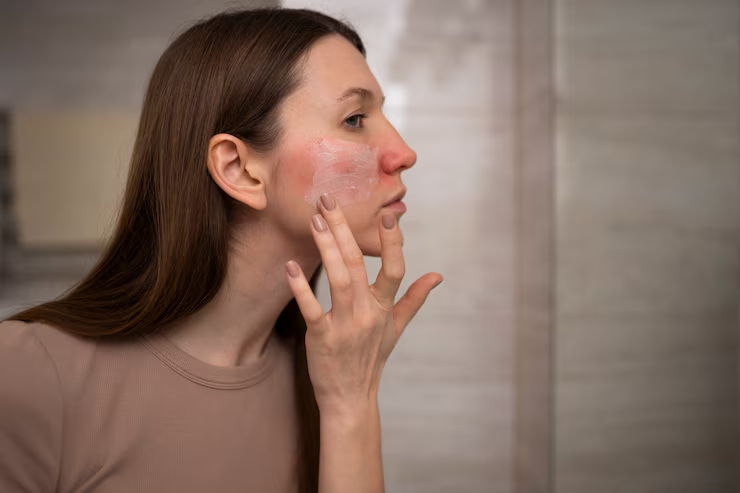Which Ingredients To Avoid If You Have Sensitive Skin: When you have sensitive skin, even the smallest trigger can lead to redness, itching, breakouts, or dryness. That’s why reading product labels becomes essential. Certain ingredients, although commonly used in skincare, can be too harsh for delicate skin types. To know in depth about what ingredients to avoid, we spoke to Dr Mandeep Singh, HOD of Plastic Dermatology and Cosmetic Surgery at Paras Health, Gurugram. Here are the top ingredients you should avoid if your skin is easily irritated:
5 Ingredients To Avoid If You Have Sensitive Skin
1. Fragrances
Fragrances are one of the most common reason behind allergic reactions on sensitive skin. Whether synthetic or derived from natural essential oils, fragrances can irritate the skin, causing redness, dryness, or itchiness. Products labelled “unscented” may still contain masking agents, so it’s best to choose those marked “fragrance-free.”
2. Alcohol
While some types of alcohol (like fatty alcohols) are safe and even hydrating, denatured alcohol and ethanol can dry out your skin and disrupt its natural barrier. Mandeep Singh says, “Any kind of fragrance (synthetic or natural), alcohol like SD alcohol, and strong exfoliants, can sometimes cause symptoms of redness and inflammation. These reactions may also be triggered by other ingredients such as sodium lauryl sulfate or SLS, formaldehyde-releasing preservatives, and very high-strength retinoids.”

Thus, this makes it more prone to sensitivity and environmental damage, leading to tightness or flaking.
3. Sodium Lauryl Sulfate (SLS)
Mandeep Singh shares that this harsh cleansing agent is commonly found in foaming cleansers, shampoos, and body washes. While it helps remove oil and dirt, it also strips the skin of its natural moisture, making it especially harsh on sensitive skin. Consider switching to sulfate-free products for a gentler cleanse.
Don't miss: Homemade Coconut Oil And Oats Face Mask For Dry Skin
4. Essential Oils

While often marketed as natural and healing, essential oils like lavender, peppermint, tea tree oils, and citrus oils can trigger reactions in sensitive skin. They may cause stinging, redness, or even allergic dermatitis, particularly when exposed to sunlight or used in high concentrations.
Don't miss:Top 10 Luxury Facial Oils For Anti-Ageing And Radiance
5. Preservatives Like Parabens And Formaldehyde Releasers
Preservatives are important for preventing bacterial growth, but some, like parabens and formaldehyde-releasing agents (e.g., DMDM hydantoin, quaternium-15), can cause irritation. “In cosmetics, preservatives are used to prevent bacteria and mold growth. Parabens can mimic estrogen in the body and impair hormonal equilibrium”, states Clinikally. Look for safer alternatives like phenoxyethanol or products marketed as preservative-free.
Note: People with sensitive skin should always patch-test new products before applying them to the face.
For more such stories, stay tuned to HerZindagi.
Image credit: Freepik

Take charge of your wellness journey—download the HerZindagi app for daily updates on fitness, beauty, and a healthy lifestyle!
Comments
All Comments (0)
Join the conversation